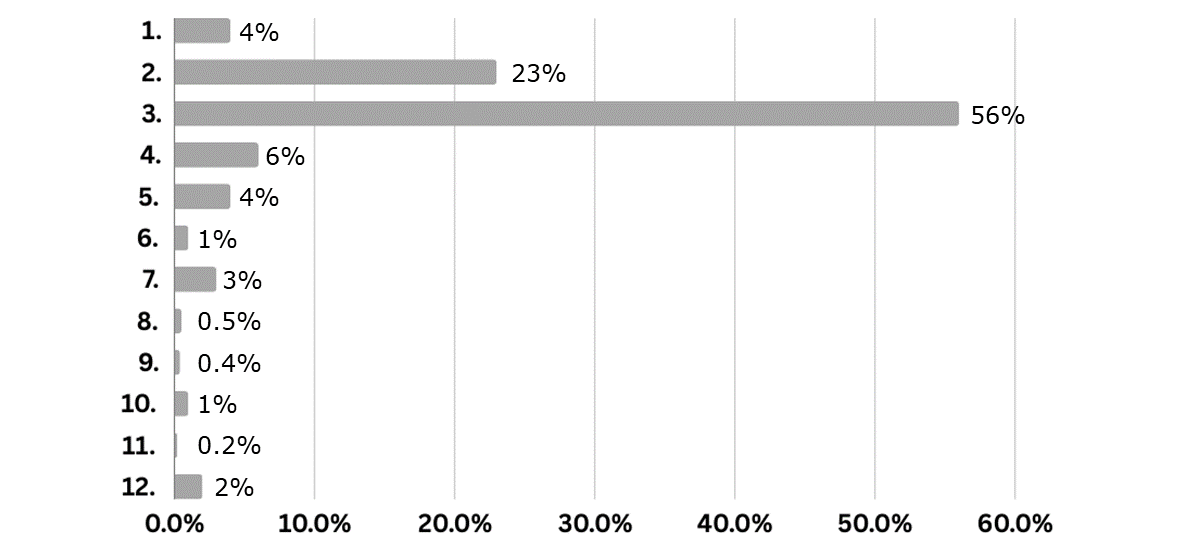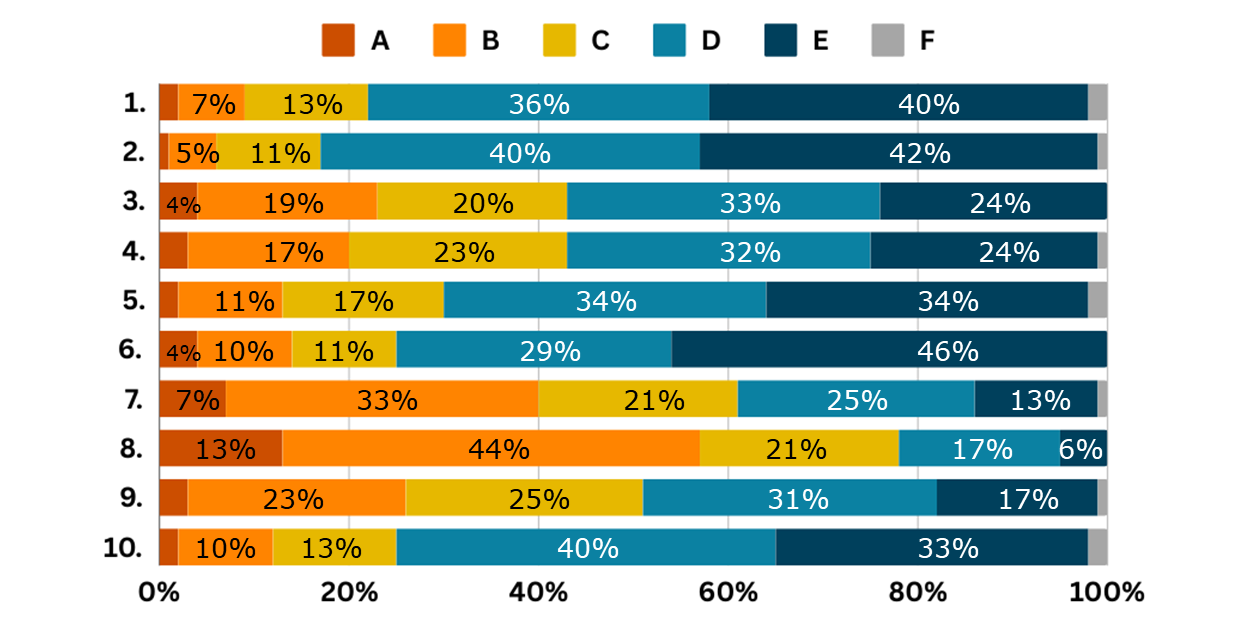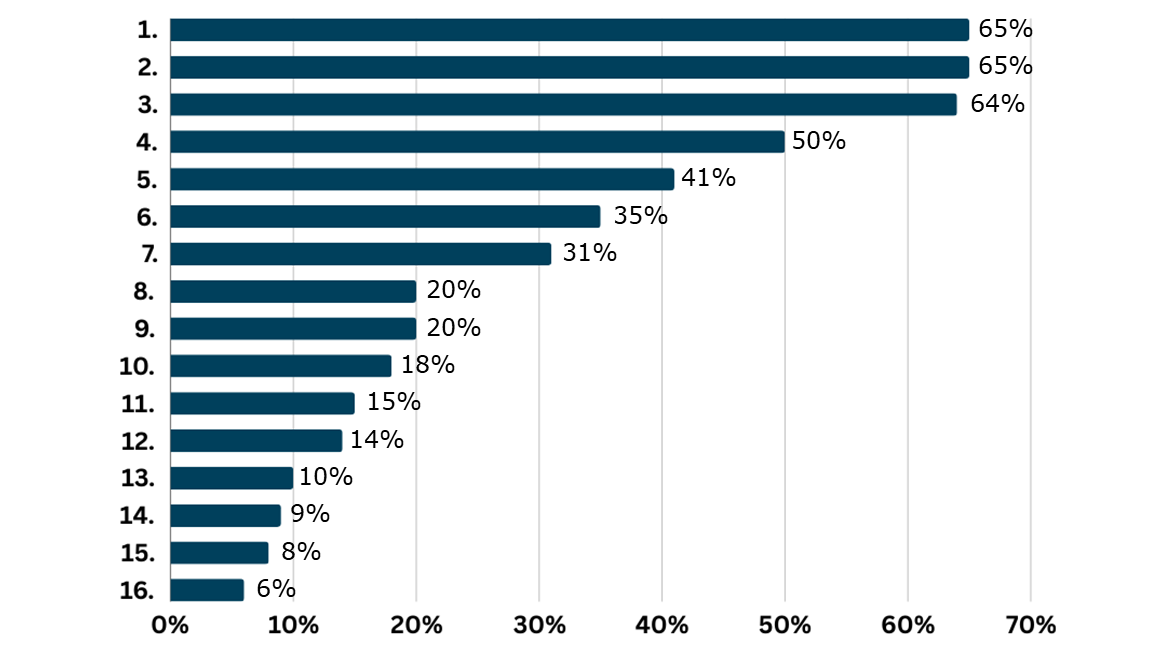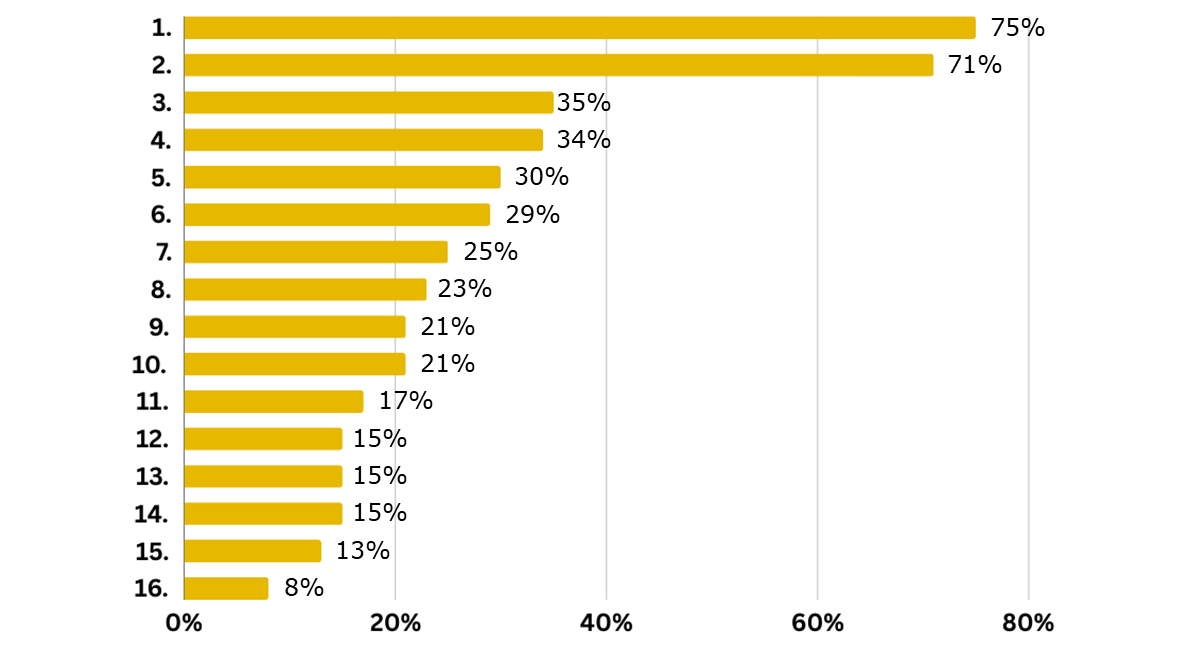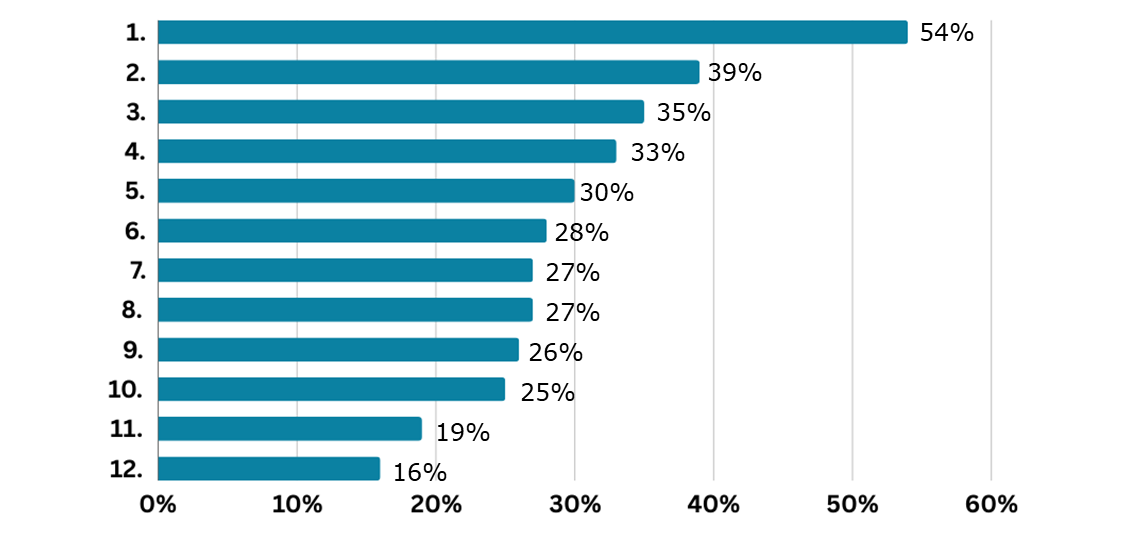Survey on reinforcing the attractiveness of teacher careers - Results

Teacher shortages put the provision of high-quality, inclusive and innovative education at risk. Promoting teachers’ professional development and flexible pathways, campaigning to make the profession more attractive and offering more recognition were among the discussed solutions during the recent Sixth European Education Summit.
The Education and Training Monitor 2023 examines attractiveness of the teaching profession in three broad areas: motivation (e.g. recognition), abilities (e.g. training) and opportunities (e.g. career pathways). EU countries employ various strategies to enhance the appeal of teaching careers, such as alleviating heavy workloads and long hours, attracting more students into initial teacher education and providing alternative pathways into the profession.
The survey gathered 1685 responses from platform visitors, most of which were from French, German, Portuguese and Spanish teachers in secondary and primary education.
Which of the following best describes your role?
- Teacher – early childhood education and care
- Teacher – primary education
- Teacher – secondary education
- Teacher – vocational education
- School head
- National, regional or local authority
- Teacher educator
- Education policymaker
- Parent
- In-school support (e.g. school librarian, career counsellor)
- External practitioner (visiting schools)
- Other educational professional/stakeholder
1 - How would you rate the overall attractiveness of the teaching profession?
The survey findings indicate that 59% view teaching as unappealing or highly unappealing, and fewer than one in four (22%) respondents find teaching appealing or highly appealing, A further 19% are neutral, finding it neither attractive nor unattractive.
- Very attractive
- Attractive
- Neither attractive nor unattractive
- Unattractive
- Very unattractive
2 - To what extent do you agree with the following statements about the teaching profession in your country/region?
A significant majority (76%) consider that teaching is not a respected and valued profession in their region or country. Even more respondents (82%) feel that teachers are not sufficiently appreciated for their work. A minority (23%) consider that teachers have sufficient opportunities for growth and professional development, but more than twice as many (57%) disagree or totally disagree. Similarly, the support provided by school administrations to teachers divides opinions: only 20% deem that the support is adequate, while 56% see that the support is insufficient.
Work-life balance and workload are significant concerns: 68% of respondents consider that teachers’ workload does not permit a healthy balance between work and personal life. Furthermore, a majority (75%) think that teachers’ pay is inadequate. Only 12% of respondents feel that teachers can focus on teaching rather than non-teaching tasks, pointing to a considerable administrative workload.
More encouragingly, 57% agree/totally agree that teachers have autonomy in their teaching methods and tools, and 40% agree/totally agree that they have access to the necessary teaching resources and equipment.
A.Totally agree | B. Agree | C. Neither agree nor disagree | D. Disagree | E. Totally disagree | F. I don’t know
- Teaching is a respected and valued profession.
- Teachers receive adequate appreciation for their work.
- Teachers have sufficient opportunities for growth and professional development.
- The school administration provides adequate support for teachers, e.g. mentoring in particular for novice teachers.
- Teachers’ workload allows for a healthy work-life balance.
- Teachers’ pay is adequate.
- Teachers have access to the necessary teaching resources and equipment (e.g. textbooks, ICT).
- Teachers have autonomy in their choice of teaching methods and tools.
- Teacher input is valued in decision-making processes within the school.
- Teachers are able to focus most of their time on teaching rather than on non-teaching tasks.
3 - Which are the main challenges you feel affect the appeal of teaching as a career?
The main challenges that impact the appeal of teaching as a career were clearly singled out by the respondents: heavy workload and stress levels (65%), lack of respect, recognition and appreciation from authorities and the public (65%), inadequate salary and benefits (64%) and pupil behaviour issues (50%). Other factors are the high pupil-to-teacher ratio (41%), the negative portrayal of teachers and education in the media (35%) and limited opportunities for career advancement (31%).
The challenges that were considered less severe include accountability pressures (18%), communicating with parents (14%), lack of professional development opportunities (10%), working hours (9%) and job insecurity (8%). This would indicate that efforts in these areas may not increase the appeal of teaching.
- Inadequate respect, recognition and appreciation by authorities and the public
- Heavy workload and stress
- Inadequate salary and benefits
- Pupil behaviour issues
- High pupil to teacher ratio
- Negative media coverage of teachers and education as a whole
- Limited career progression opportunities
- Insufficient resources and equipment
- Lack of support from administration
- High expectations and accountability pressures
- Other professions have become more attractive
- Communication and liaising with parents, including via social media
- Insufficient professional development
- Inflexible working hours
- Employment insecurity
- Insufficient professional autonomy
4 - Which strategies could most help make teaching more attractive as a career?
Turning to how teaching could be made more attractive, two areas clearly emerged: reducing the non-teaching workload (75%) and increasing salaries (71%). In comparison, the next measures were selected less often: supporting enhanced health and well-being benefits (35%), improving classroom resources and supplies (34%) and additional support for classroom management (30%). Respondents also chose clearer career advancement pathways (29%), professional development opportunities (25%) and using teaching assistants more effectively (23%).
Less preferred measures by the respondents are flexible work arrangements (17%), learning mobility opportunities, advancement prospects, and more collaboration and peer-learning (all 15%). Longer induction for new teachers (13%) and appraisal (8%) were perceived as the least effective strategies.
- Reducing non-teaching workload, e.g. cutting out some administrative tasks
- Increasing salary
- Offering better health and well-being benefits
- Improving classroom resources and supplies
- Providing more support for teachers for classroom management
- Establishing clearer pathways for career progression
- Providing regular and meaningful continuous professional development
- Increased use of teaching assistants
- Trusting teachers with more autonomy to decide on teaching approaches
- Targeted financial incentives in areas of high needs
- Implementing flexible teaching schedules and work arrangements
- Offering leadership and promotion opportunities within schools
- Providing more learning mobility opportunities
- Increasing collaboration and peer-learning opportunities among teachers
- Longer induction and mentorship programs for new teachers
- Using appraisal to address teachers’ needs for professional development and support
5 - Which strategies could help improve public perception of the teaching profession?
The most favoured strategy for enhancing the public perception of teaching is endorsement by politicians, with 54% of respondents supporting this approach. Other measures that garnered support include public recognition initiatives such as award ceremonies, fellowships, scholarships and research grants, social media campaigns and personal testimonials from teachers (ranging from 30% to 39% of respondents).
Investing in communications and public relations personnel was identified by 28% of participants. Also receiving some support are advertisements that depict teachers at work and interview-style TV shows (both 27%), newspaper and magazine articles (26%), and open days and community engagement (25%).
Strategies with low levels of support are ambassador teachers (19%) and TV dramas portraying positive teacher narratives (16%).
- Speeches and support from politicians
- Public recognition such as prizes or events highlighting outstanding teachers (e.g. the European Innovative Teaching Award)
- Offering fellowships, scholarships and grants to support research work on teaching practices
- Social media campaigns
- Teacher testimonies about why they like being a teacher
- Dedicated communications and public relations staff in municipalities/schools
- TV programmes interviewing teachers about their job
- TV/media adverts showing teachers at work in real classrooms
- Articles in newspapers and magazines
- School open days, school visits and similar events
- Appointing ambassador teachers to promote the attraction of teaching
- TV dramas featuring teachers in positive settings
Discussion
The survey findings provide a snapshot of views on the perceptions and challenges surrounding the teaching profession, particularly those of teachers and others working in schools. Their overwhelming view is that teaching is not an attractive career as it lacks respect and value, teachers are little appreciated and there are insufficient opportunities for growth. Work-life balance and pay are major concerns.
While there is some acknowledgment that access to resources and autonomy in teaching methods are less of a concern, challenges such as heavy workload, stress levels, and concerns over salary and benefits outweigh these positives.
Strategies to enhance the appeal of teaching that receive strong support are reducing non-teaching time, increasing salaries, and initiatives aimed at public perception such as speeches and endorsements from politicians, public recognition efforts and social media campaigns that showcase positive teaching stories.
Additional information
-
Education type:School Education
-
Target audience:TeacherStudent TeacherHead Teacher / PrincipalTeacher EducatorGovernment staff / policy maker

